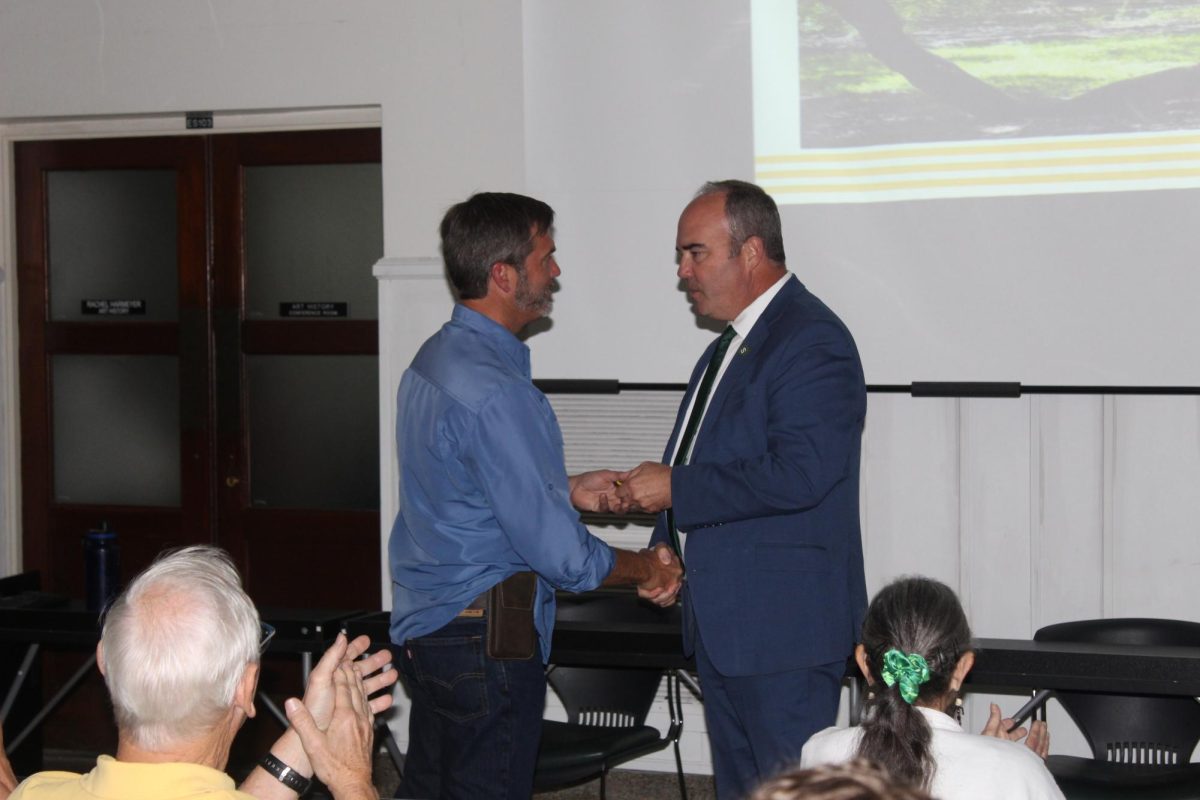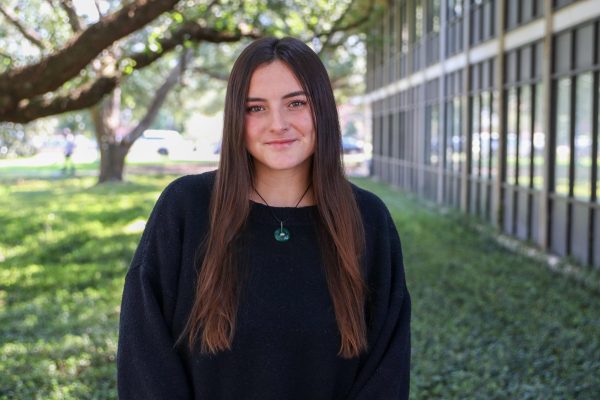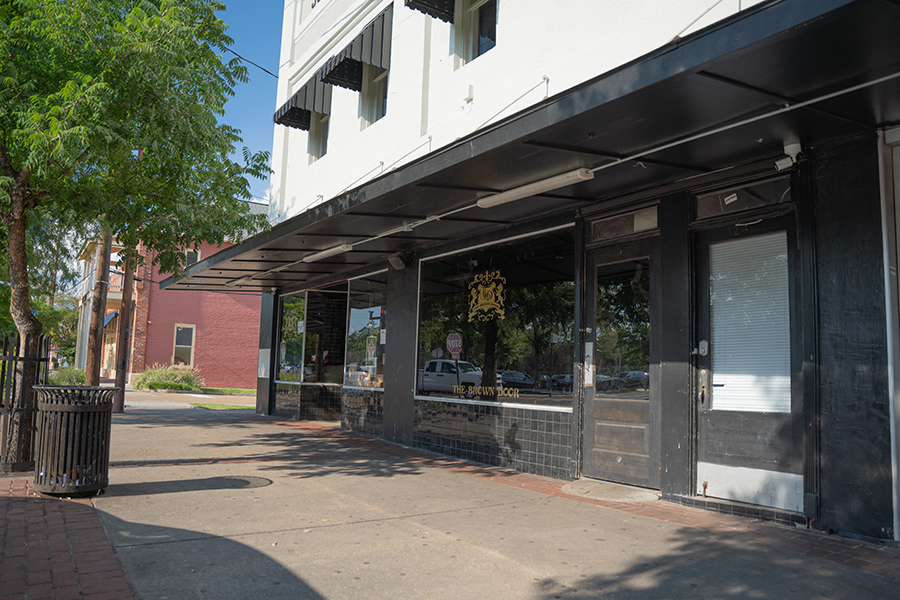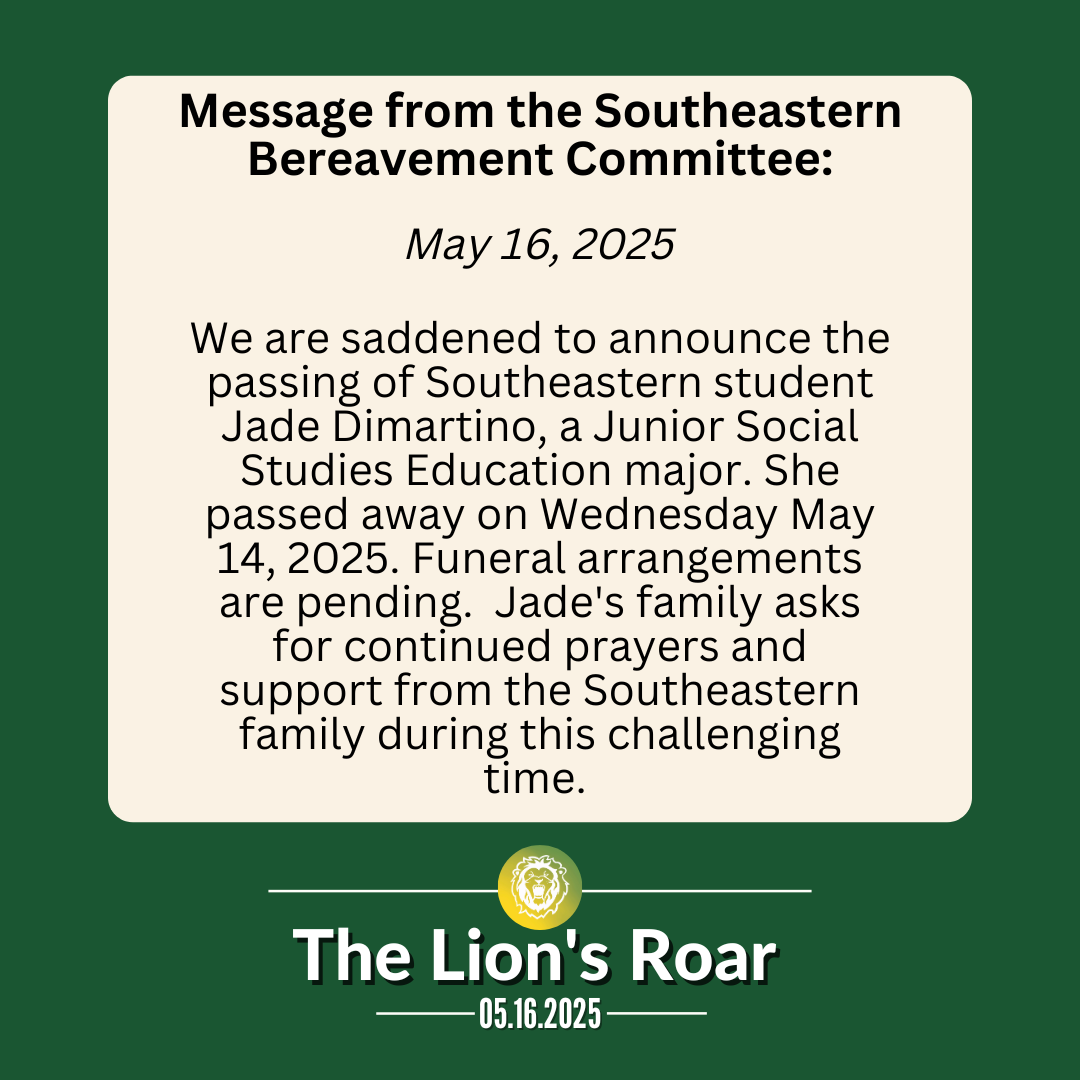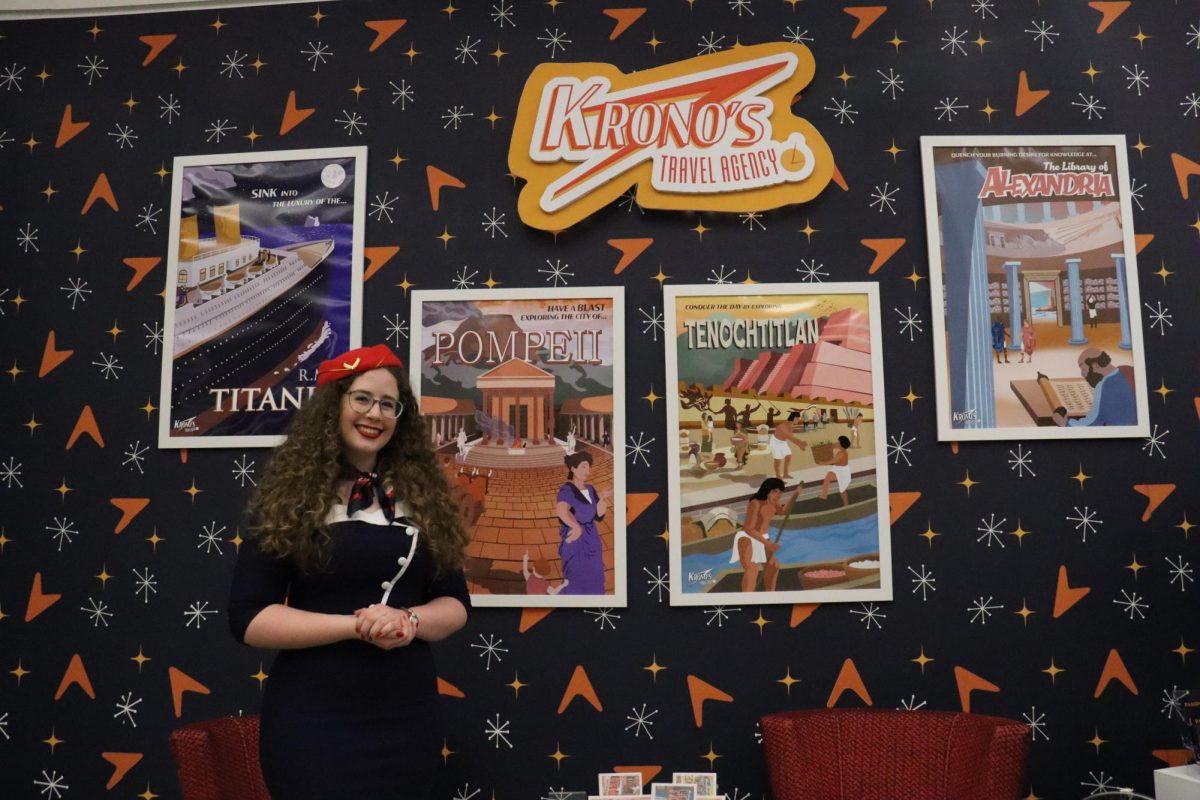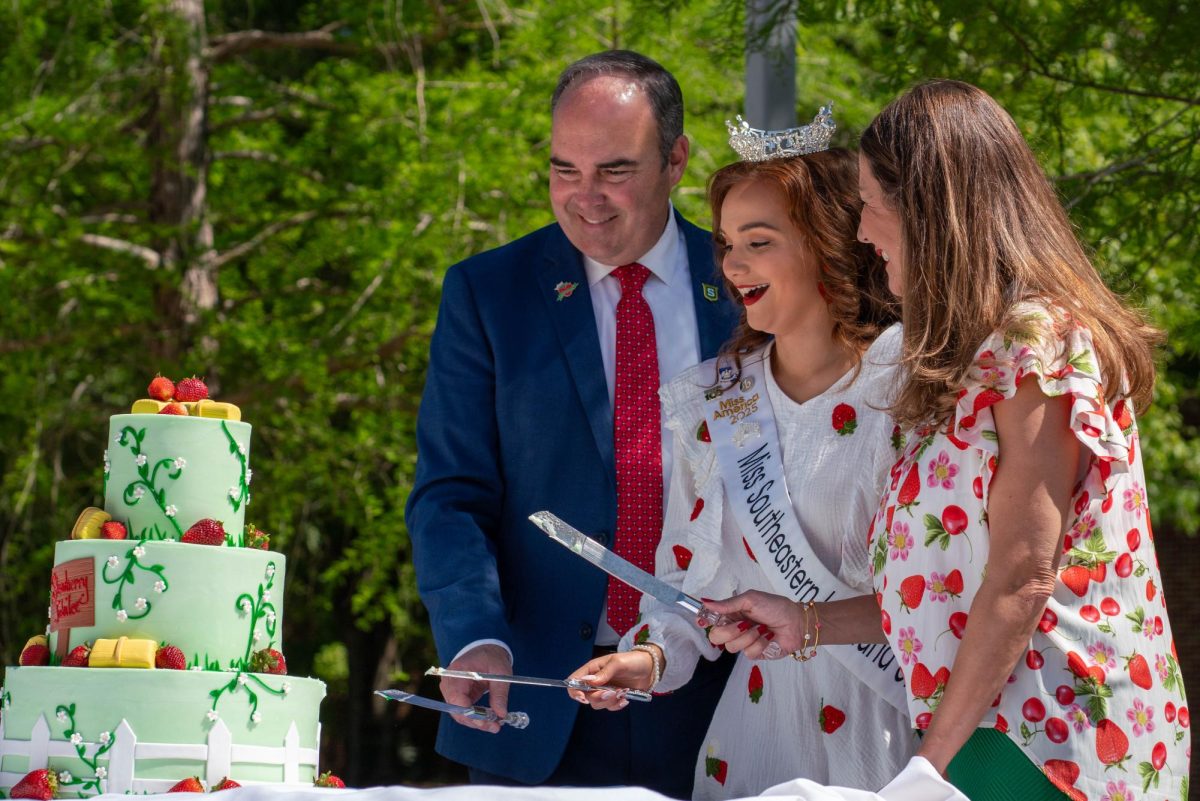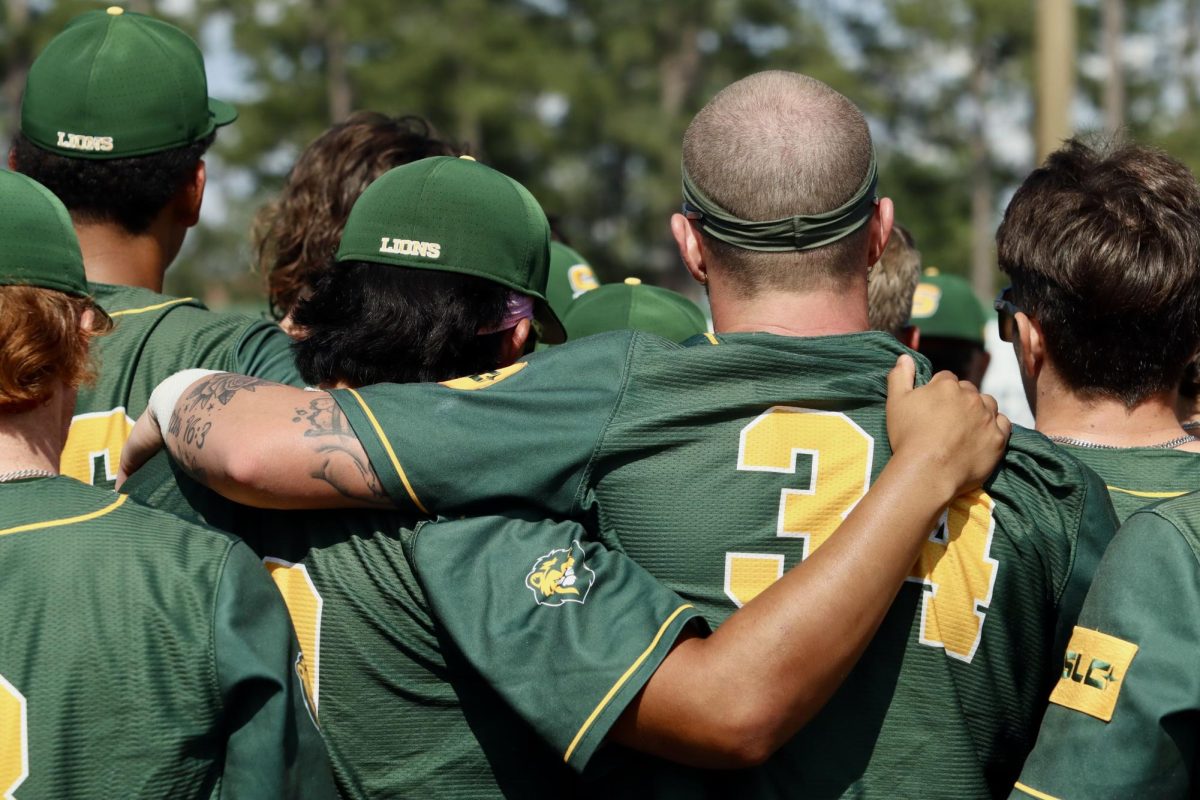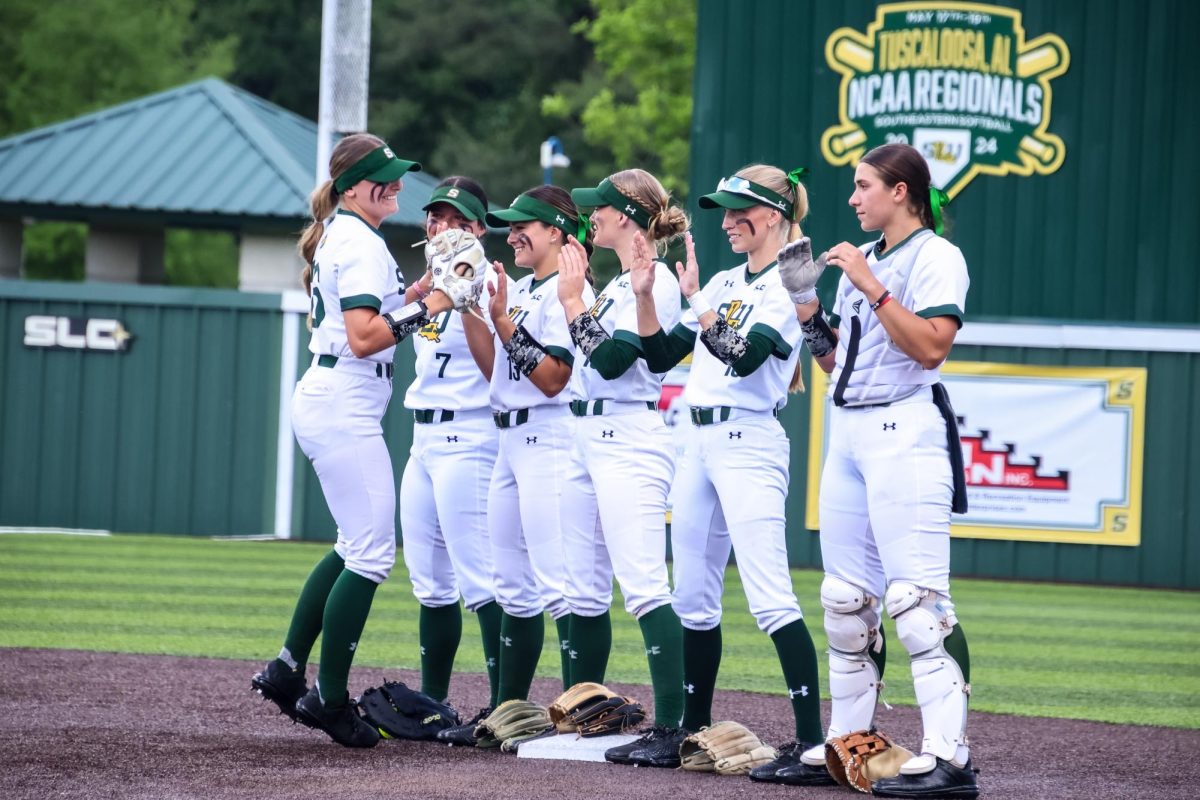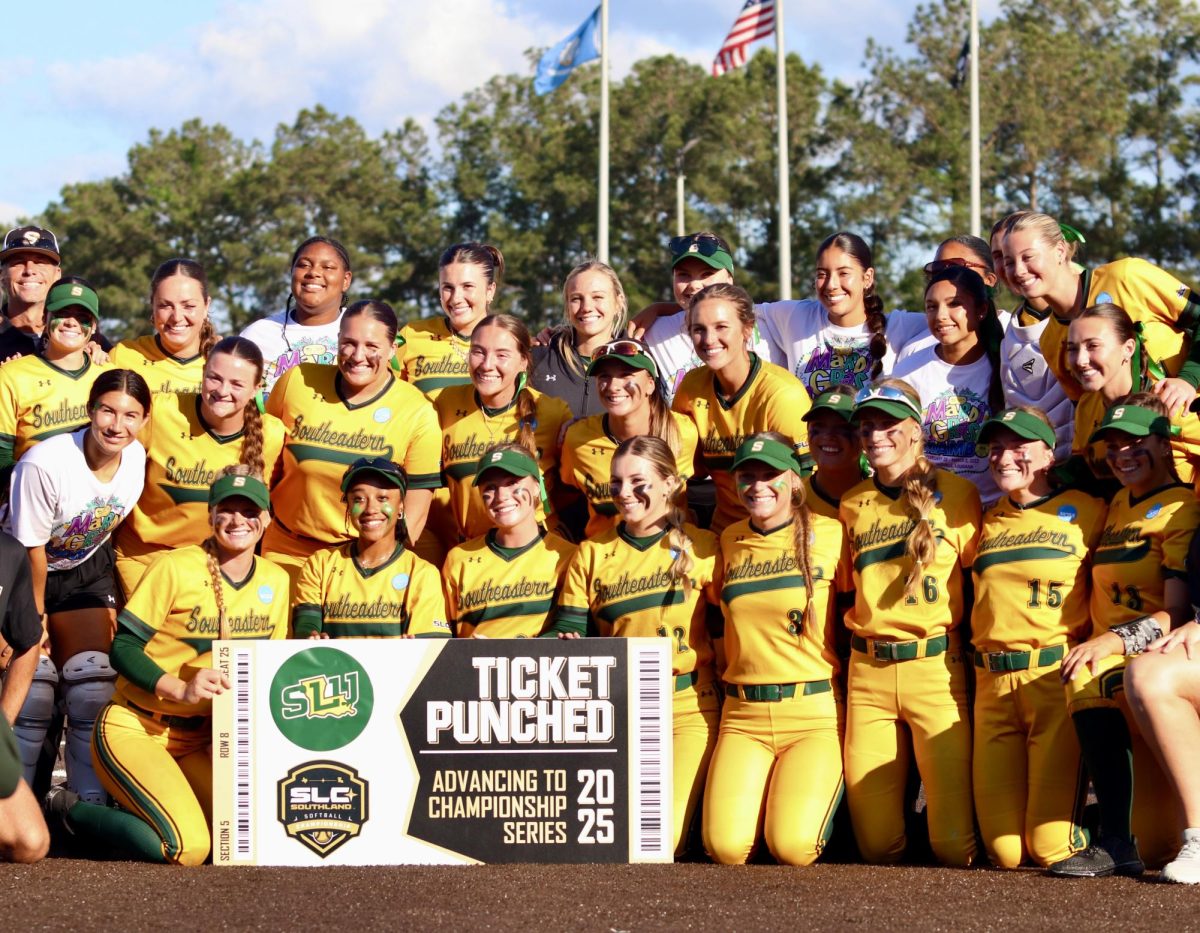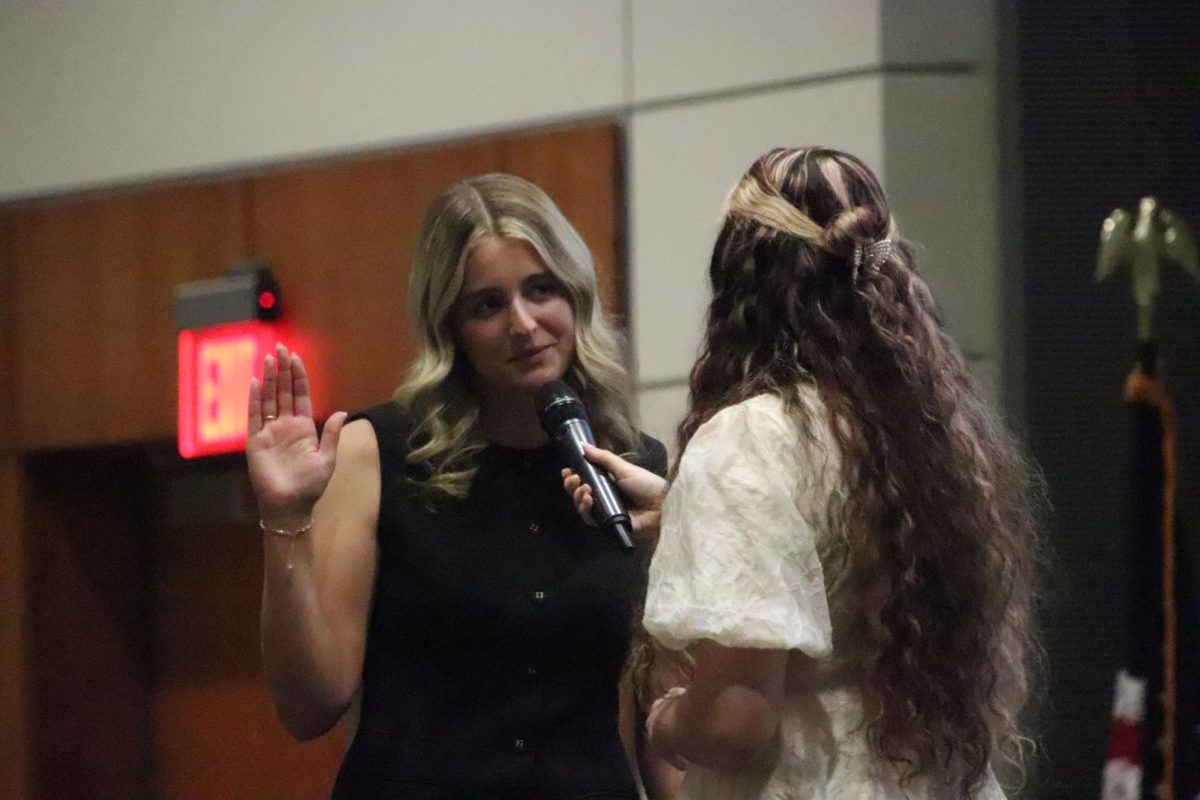|
Getting your Trinity Audio player ready...
|
Faculty, students and community members gathered in the Contemporary Art Gallery on Monday, Oct. 21 to watch and listen to the Century Under the Oaks at Southeastern visual journey.
Assistant Director of Physical Plant Services for Landscape and Grounds Carlos Doolittle gave the presentation, which detailed the history, conservation and future plans for the oak trees on campus while celebrating its centennial celebration this year.
SLU President Dr. William Wainwright presented Doolittle with a medal to honor his efforts in helping to preserve the oak trees on campus. The medal was gold and green inscribed with an oak tree and the phrase, “Lion Up.”
The Live Oak Society helps preserve and recognize oak trees nationwide. Oak trees can qualify as members of the Live Oak Society if they have a girth of over eight feet. For a tree to graduate to the next category as a centenarian, it must have a girth of over 16 feet. Out of Southeastern’s 19 registered trees, oak trees Abita and Tchefuncte have both reached centenarian status, with Abita having a 17-foot girth and Tchefuncte having a 17.9-foot girth.
Among these 19 trees is Friendship Oak, Southeastern’s famous landmark and the centerpiece of Friendship Circle.
“Friendship Oak was basically the first Student Union,” Doolittle said. Facilitating game day celebrations, commuting to class, or socializing with friends, most students have passed through Friendship Circle and Friendship Oak.
Although Friendship Oak’s exact date of origin is unknown, there are pictures of the tree from between 1930 and 1940. Many preservation projects have been implemented to help protect the tree’s life. These projects include lightning protection, foam filling, air spading, soil fractionation, reconstruction around the oak’s base and a French drain installation, among many other initiatives.
Arborists, conservationists and Southeastern graduates Dr. Malcolm Guidry and Dr. Frederick Fellner gave additional consultation after 2021 due to the heavy rains.
“They have gone out of their way and taken Friendship Oak on as a personal project and we are very grateful to them for that,” Doolittle said.
By the process of cutting, Friendship Oak was cloned with the help of Greenforest Nursery and Plant Development Services. Cutting propagates the trees asexually, and about 20 of Friendship Oak’s cuttings were successful. “One of our goals is to plant a clone or multiple clones of Friendship Oak as part of our Centennial celebrations,” Doolittle said.
Furthering the continuation of oaks on campus, a seedling of Friendship Oak had already been planted on campus in 1956. A seedling is a new individual plant, which differs from the clones. Some of these trees will be added to the registry in the future.
Although Friendship Oak has a vast history, it is an old oak tree that has endured both weather and time. Therefore, it will undergo more maintenance this winter, including having branches removed from the top. Seedlings will continue to grow around Friendship Oak, creating a grove-like area.
“Dr. Christopher Beachy in biology made a recommendation that deeply resonated with me, and the administration has given the nod of approval toward this. He suggested that we interpret this very important landmark on campus as Friendship Grove,” Doolittle said.
Approximately 65 new trees have been recommended for name selection for this year’s Centennial celebration. These trees will be named using the same method as previous trees, using the names of different waterways and tributaries as inspiration.
“I’m here to tell you Friendship Oak is never coming down, I can assure you that. However, we are going to continue to do things that are going to impact its look, but those efforts are to preserve and help,” Wainwright said.
The development of Southeastern’s oak trees spans the university’s century of operation. With ample nurturing, these trees have grown around campus, offering students a beautiful and historic environment to further their academic careers. For more information on Southeastern’s oak trees, visit Physical Plant Services or the Live Oak Society.


